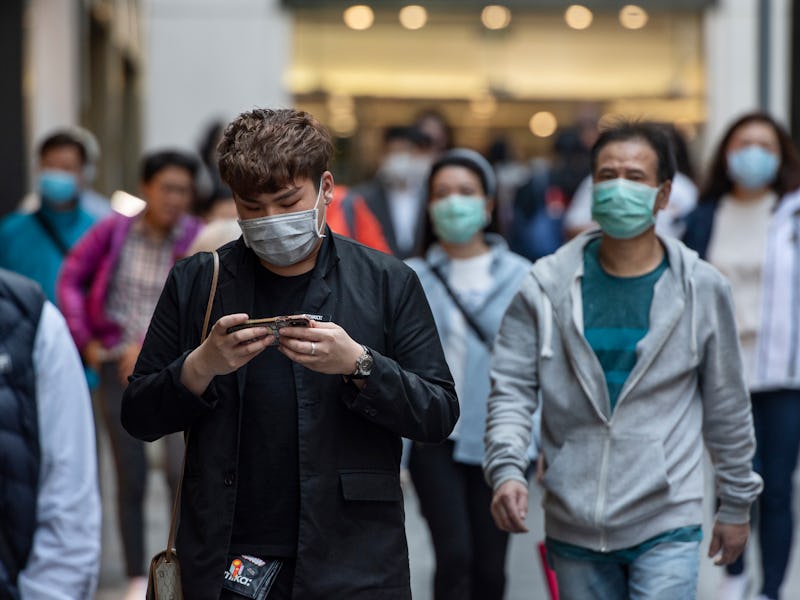Surgical masks are no match for China's facial recognition technology
A Chinese company has announced that it has developed facial recognition software that can identify people even if they're wearing a surgical mask.

China now has over 80,000 cases of coronavirus, officially known as COVID-19, so you can imagine a lot of people are wearing surgical masks. It's not uncommon to see someone wearing a surgical mask in China when there hasn't been a virus outbreak. The Chinese public is heavily surveilled, and facial recognition is often utilized in the country's surveillance systems, and a Chinese company is claiming it can now identify someone using facial recognition even if they're wearing a surgical mask.
As Reuters reported on Monday, Hanwang Technology Ltd claims it was able to develop this facial recognition system by utilizing thermal sensors.
“If connected to a temperature sensor, it can measure body temperature while identifying the person’s name, and then the system would process the result, say, if it detects a temperature over 38 degrees,” Hanwang Vice President Huang Lei told Reuters.
The company used a database of pictures of 6 million unmasked faces and a smaller set of pictures of masked faces to develop the software. It's already been on the market since last month, and Huang claims it can identify every person in a group of 30 people within just one second. He claims the software is 95 percent accurate when used on masked faces. Chinese police are already working with it.
Huang wants this technology to be used around the world, and the company currently has around 200 clients in China with plans to get more soon. The system does still struggle to identify people when they're wearing a mask and glasses, so it appears it can't identify people correctly ever time. Huang says it's meant to help identify criminals and terrorists, but we know China uses surveillance for tracking more than that.
China's surveillance state is extremely controversial, as it's been used to track and "subdue" millions of Uighurs in the country, which is a Muslim minority in China that have reportedly been detained in indoctrination camps meant to force them to adopt what they view as the correct cultural values.
China is also using facial recognition to track people as part of its "social credit score" program, which is a system that involves rating all of the country's people based on their value to society. This program has made some people's lives very difficult because they can end up losing eligibility for a loan or facing other punishments based on how their actions are viewed. It's safe to say that's a pretty Orwellian use of facial recognition.
See also: Facial recognition industry set to make billions despite bans around the country
Many anti-surveillance activists have come up with ways to use face paint, hairstyles and other methods for beating facial recognition software, and it's not clear if those techniques will work with this new facial recognition system that's been developed in China. As these systems become more sophisticated, they will surely become harder and harder to beat.
The Inverse analysis
One thing we're always concerned about is how facial recognition can be used to judge how someone is feeling. Considering we don't know how it makes these judgments, the algorithms that drive these systems are often biased against people of color and women and the fact these systems can be used in the workplace, in criminal justice and beyond, the possibility of something going wrong seems high. If a facial recognition system inaccurately labels your emotions and you're harmed by that, there's little you can do about it.